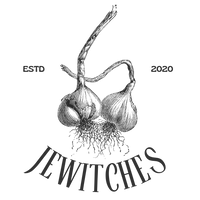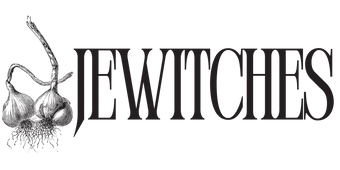The month of Elul, which falls just before the new year, is a month of introspection and taking stock.
In Judaism, we have the concept of Teshuvah, [which we have briefly discussed in our post on dybukkim], which translates roughly to repentance, though the concept of repentance in Judaism is not the same as in Christianity. It is not simply for sins outlined in our texts, nor does it mean ultimate salvation as it can in other faith traditions. In Judaism, sin is most often described as missing the mark or wandering off the path. This concept of sin, which doesn't frame each sin as equally damning, aligns with the Jewish path to repentance, renewal, and returning to Oneness.
Teshuvah, also spelled Tshuvah, means "returning", which, when tied with the word for sin, "chet", denotes a return to the path and to our best selves. Our most righteous selves. Our most true selves. Our most wholesome selves. Teshuvah is a specific set of actions used to take accountability and right a wrong that has been done.
I have seen Jewish mysticism describe sin as taking sacred, holy sparks of ourselves and casting them aside. Teshuvah, metaphorically, is retrieving those sparks.
There are two types of sins outlined in Jewish texts: sins against HaShem (G-d), and sins against other people. To do Teshuvah for the first is different than to do Teshuvah for the second.
It is crucial to note that G-d cannot forgive a sin committed against another person.
The steps to Teshuvah are as follows, though not always in this order:
- regretting & acknowledging the sin or wrongdoing
- forsaking the sin or wrongdoing
- worrying about the future consequences of the sin or wrongdoing;
- acting and speaking with humility;
- acting in a way opposite to that of the sin or wrongdoing(for example, for the sin of lying, one should speak the truth);
- understanding the magnitude of the sin or wrongdoing;
- refraining from lesser sins or wrongdoings for the purpose of safeguarding oneself against committing greater sins or wrongdoings;
- confessing the sin or wrongdoing;
- praying for atonement;
- correcting the sin or wrongdoing however possible (for example, if one stole an object, the stolen item must be returned; or, if one slanders another, the slanderer must ask the injured party for forgiveness);
- pursuing works of chesed and truth;
- remembering the sin or wrongdoing for the rest of one's life;
- refraining from committing the same sin or wrongdoing if the opportunity presents itself again;
- teaching others not to sin or do such wrongdoings
The goal of Teshuvah is not forgiveness, nor is a person required to forgive. The precedence here is solely placed on doing the work, even if there is no promised reward of forgiveness. This structure forces accountability to be placed on the wrongdoer, not the wronged.
During the month of Elul, we carefully evaluate our lives and assess our progress in the process of Teshuvah on both external and internal levels. We take stock of who we are, where we are, and what we can do to better ourselves: or more accurately, how we can return to the path.
Here is a checklist of 10 things to meditate, ruminate, and ponder over in the next few days:
- Have you wronged someone or sinned (whatever that means to you) in way that requires Teshuvah?
- Are you dedicated to the Teshuvah that you must do?
- Is there something that you are ready to let go of?
- Is there someone that you feel ready to forgive?
- How have you hurt yourself?
- What negative belief systems do you hold that no longer serve you?
- What walls and barriers have you put up that you can let down?
- Who in your life do you need to hold accountable for harming you or others?
- What parts of yourself are you ignoring?
- What healing is there to be done in your life?
This is by no means an exhaustive list, but it is the beginning. We are in the month of Elul, but these are not time-sensitive questions. While we specifically dedicate extra time to them during the month of Elul, we are on an ever-moving journey to heal ourselves and move closer to HaShem.
For many, meditation or contemplation can be frightening, but it does not have to be. Meditation has long been associated with achieving a state of complete mental clarity or complete clearing of the mind, but it is important to recognize that it can also be engaging in contemplation and observing one's own thoughts. Instead of attempting to clear your mind, which may not work for you, you can instead sit with yourself and follow your mind as it wanders through the above questions. It may lead you somewhere surprising.
Sources:
- https://www.myjewishlearning.com/article/repentance/
- https://www.myjewishlearning.com/article/book-of-life/
- The Book of Jewish Sacred Practices, CLAL's Guide to Everyday & Holiday Rituals & Blessings.



